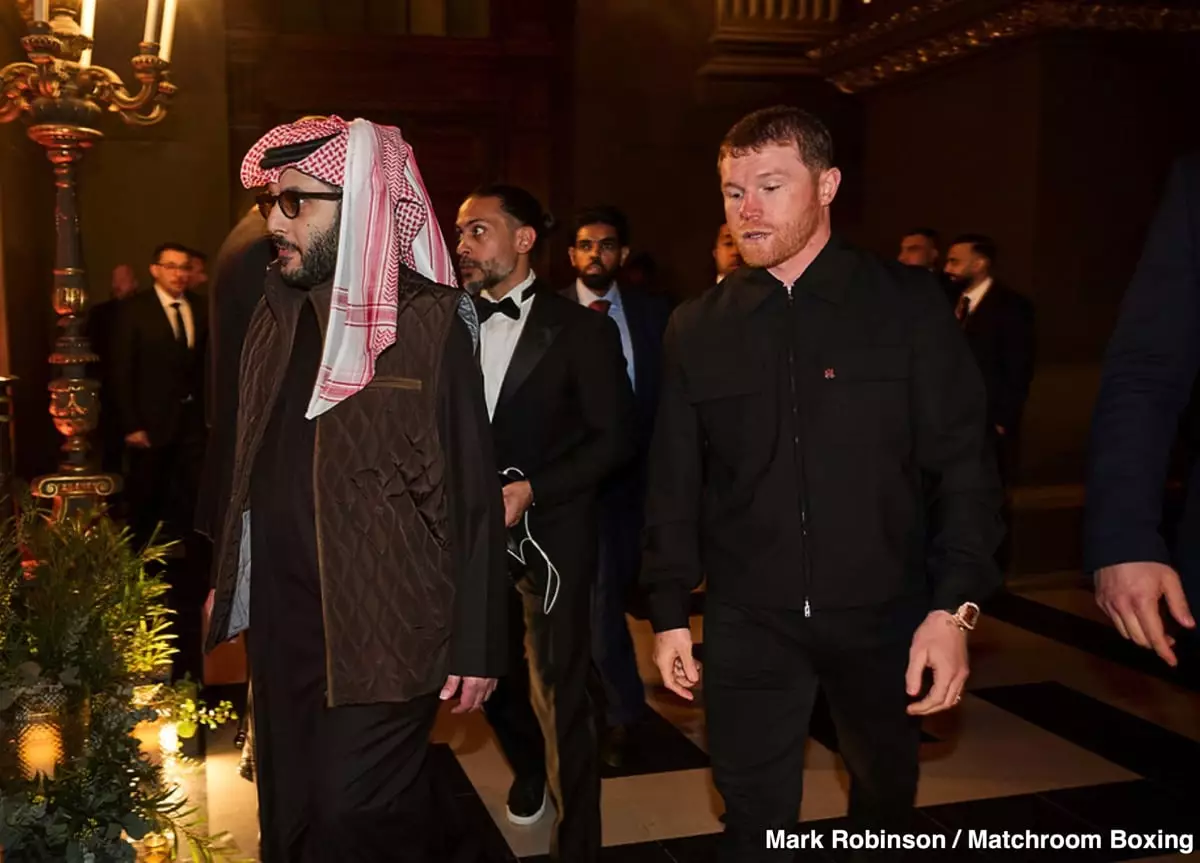As the world of boxing gears up for Canelo Alvarez’s much-anticipated match against William Scull on May 3rd in Riyadh, the stakes have never been higher. Mikey Garcia, a notable figure in the boxing community, has made bold predictions about Alvarez’s financial future. He asserts that Alvarez, currently boasting a staggering record of 62 wins, 2 losses, and 2 draws with 39 knockouts, could potentially double his net worth to an astonishing $400 million soon. This astronomical figure reflects not just Canelo’s prowess as a fighter but also the lucrative nature of the sport and the heavy investments pouring in from sources like the Saudi Arabian sports initiatives.
Garcia’s insight reveals a transition in Alvarez’s motivations, shifting from the pursuit of titles to the allure of financial gain. This transition isn’t merely about greed; it’s indicative of a broader trend in modern sports where athletes are increasingly seen as brand ambassadors and profit generators. With Canelo already estimated to be worth between $200 million to $300 million, the prospect of accruing even more wealth introduces complexities about legacy versus financial security.
A Fight for More Than Titles
While legacy is often viewed as the pinnacle of an athlete’s career, Alvarez’s upcoming undisputed super middleweight championship bout raises significant questions about what truly drives him now. Garcia argues that Alvarez’s ambition has evolved—no longer solely focused on titles, he is now prioritizing generational wealth. This perspective invites a critical examination of the motivations behind sports. Are athletes becoming prisoners of their own success, trapped in a world where monetary gain overshadows personal achievement and legacy?
Alvarez’s decision to fight Scull aligns with this new paradigm. The fight serves a dual purpose: it strengthens his financial base and provides a necessary checkmark on the way to a larger bout against Terence Crawford later this year. Critics may argue that such a decision diminishes the competitive spirit of boxing, transforming bouts into transactional events rather than traditional contests of skill and bravado.
The Saudi Arabian Influence
Riyadh’s entry into the global boxing scene cannot be overlooked. The financial backing from Saudi Arabia has not only increased the stakes for Canelo but has also disrupted the traditional hierarchies of the sport. By stating that Alvarez may have to engage in riskier fights to reach his financial goals, Garcia illuminates the extravagant expectations tied to these investments. Matchups against formidable opponents like Dmitry Bivol, Artur Beterbiev, and David Benavidez represent an attempt to enhance Canelo’s status and wealth—even at considerable risk.
This financial model poses an intriguing question: as promoters and investors stake significant sums, does the integrity of the sport endure? Should fighters like Alvarez prioritize safety and legacy over high-stakes gambles for wealth? Canelo’s decision to fight in Riyadh is emblematic of a shift in sports culture, where financial inflow and desperation for headlines can overshadow the sport’s inherent artistry.
The Dynamics of Skill vs. Strength
The anticipated showdown with Terence Crawford introduces another layer of intrigue. While Garcia lauds Crawford’s boxing skills, he also questions his ability to handle Canelo’s unmatched strength at 168 pounds. This aspect of skill versus strength doesn’t just pertain to their physical confrontation but also extends into the narrative of their careers. Will Crawford, despite his skills, fall short against a powerhouse like Canelo?
The boxing community holds diverse opinions on this matter. On one hand, some believe that skill can disrupt brute strength, while others contend that sheer power will prevail in high-pressure situations. Analyzing the fighters’ past performances provides insight into the unpredictable nature of boxing, where outcomes can hinge on a single punch, a lapse in focus, or a moment of brilliance.
In a sport driven by matchups, audiences everywhere await the unfolding drama of Canelo Alvarez’s journey, emboldened by the promise of riches uniquely available to only a few. These matches will test not only the fighters’ physical endurance but also their resolve in a world where financial ambition can overshadow authentic competitive spirit. Canelo’s unfolding narrative exemplifies the complexities of modern boxing—a fusion of old-school grit and contemporary commercialism.

